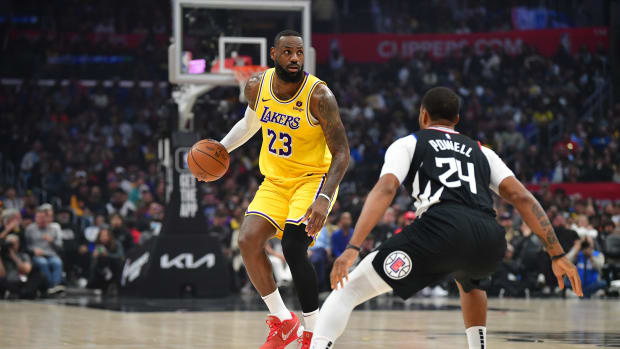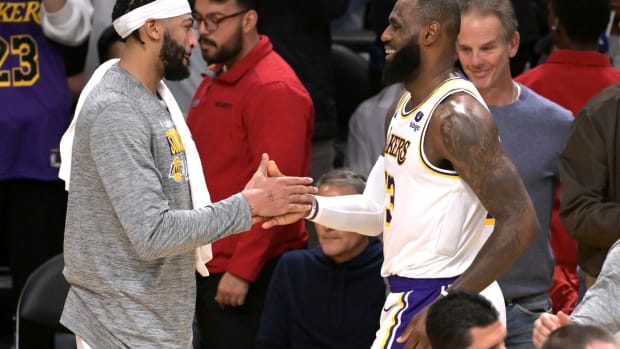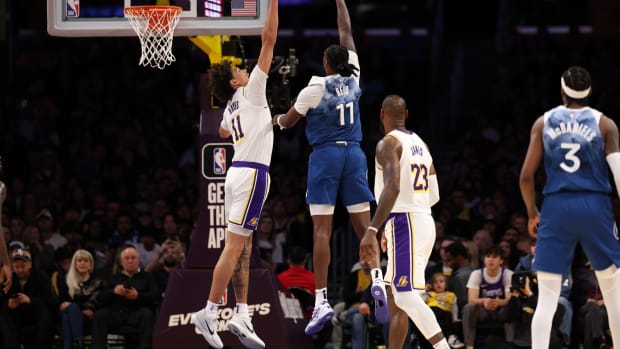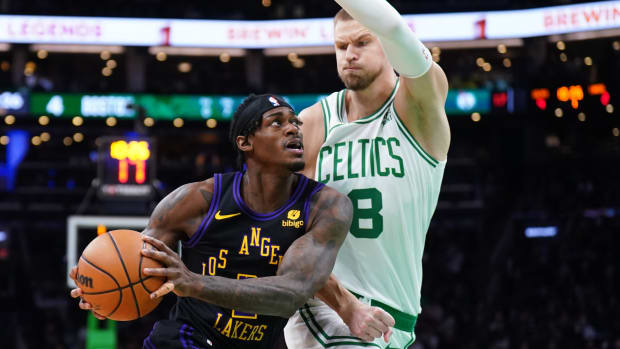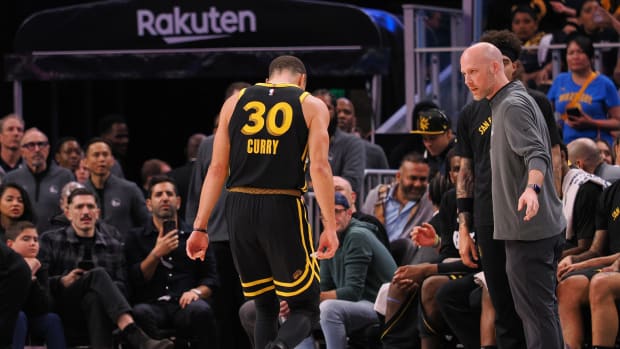Magic Johnson Calls David Stern His Angel
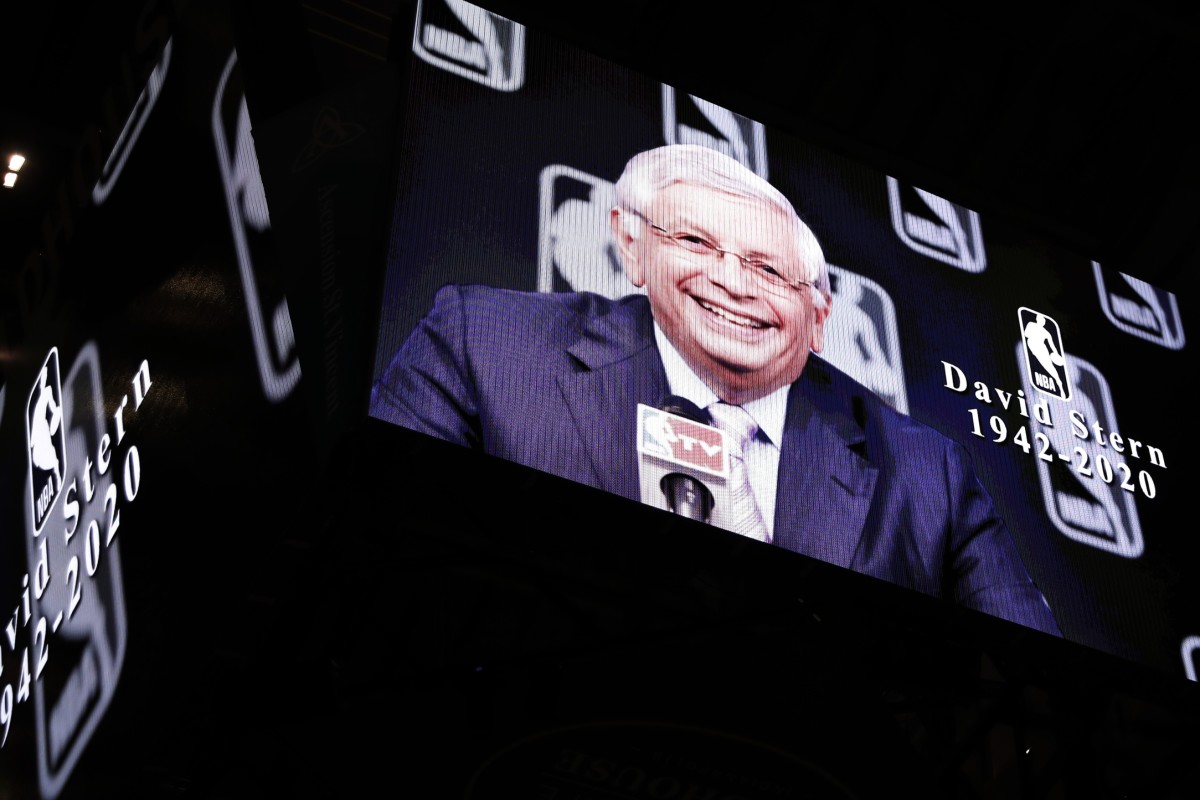
Thousands of people attended former NBA commissioner David Stern's memorial at Radio City Music Hall in New York on Tuesday to honor his life, including many current and former players and coaches. Stern, who spent 30 years at the head of the league, died Jan. 1 after suffering a brain hemorrhage. He was 77 years old.
Magic Johnson was among the 10 speakers, and he talked about how Stern supported him after his HIV diagnosis in 1991.
"In a time of need 29 years ago, the toughest time in my life, the darkest moment in my life, my commissioner turned into my angel and he was able to throw me a lifeline," Johnson said, according to Dave McMenamin of ESPN.
When Johnson was diagnosed with HIV, the virus wasn't well-understood. Stern hired a leading AIDS researcher, Dr. David Rogers, to educate the league about the disease.
Johnson retired on Nov. 7, 1991, because of the diagnosis, but NBA fans voted for him to play in the 1992 All-Star game. Stern responded by standing by Johnson and inviting him to play, despite the protestations and fears of some owners and players.
"That game saved my life," Johnson said, according to ESPN. "It gave me the energy that I needed to carry on and to live on and knowing that David paved the way for me to actually play in that game. ... We used to talk about it all the time, how we changed the world and how we changed HIV and AIDS on that particular day, as well as we saved a lot of people's lives that day."
Johnson was named MVP of that game, after finishing with 25 points, nine assists, five rebounds and two steals. Johnson went on to play for the US Dream Team at the 1992 Olympic Games in Barcelona.
Years later on Jan. 29, 1996, when HIV was better understood, Johnson rejoined the Lakers, playing in 32 games before permanently retiring that summer.
"I am going out on my terms," Johnson said in a statement at the time. "Something I couldn't say when I aborted a comeback in 1992."

